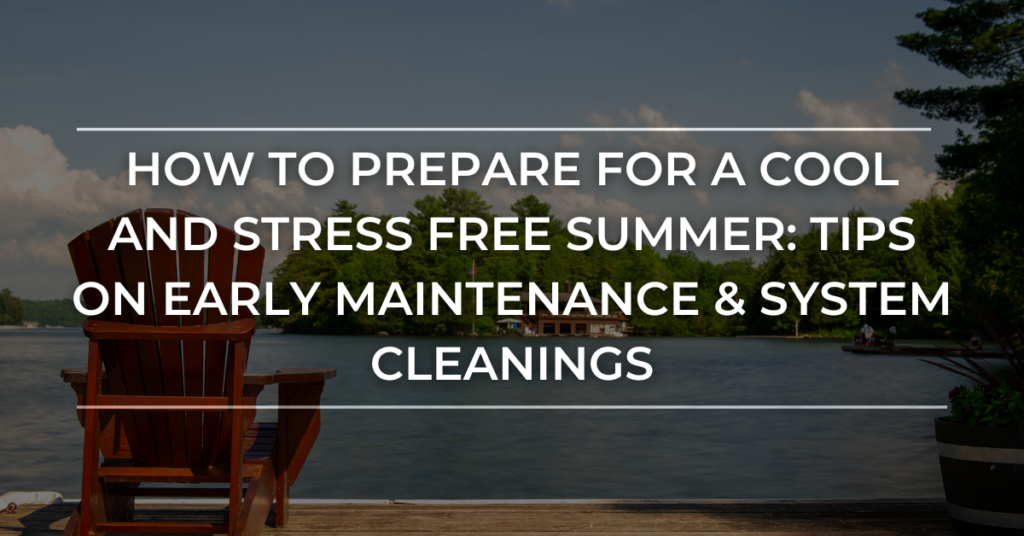
Living along the Carolina coast means dealing with high humidity levels all year, and we mean ALL year. This can affect your home’s comfort and put extra strain on your HVAC system. If you’re looking for ways to reduce humidity in your home and improve your HVAC system’s performance, here’s what you need to know.
Why Is Humidity a Problem for Your HVAC System?
High humidity makes the air feel warmer and heavier, forcing your air conditioning system to work harder to cool your home and remove moisture from the air. When your AC is overworked, it uses more energy and becomes less efficient, driving up your energy bills. You may also notice your air conditioner turning on and off frequently, a process known as “short cycling.” This not only makes your home less comfortable but also causes wear and tear on your system, leading to costly repairs. Coastal homeowners also face the challenge of salty sea air, which can corrode HVAC components and further reduce efficiency, increasing the risk of damage over time.
Common Signs of High Humidity in Your Home
- Your home feels warm and sticky, even when the air conditioner is running.
- Condensation forms on windows or walls.
- You notice musty smells or see mold growth.
- Family members experience increased allergy or respiratory issues.
- If you’re experiencing any of these signs, it’s time to look into ways to reduce the humidity in your home.
Simple Solutions to Manage Humidity
- Install a Whole-Home Dehumidifier: A whole-home dehumidifier works alongside your air conditioner to remove extra moisture from the air. This reduces humidity and makes your home feel cooler, even when temperatures are high. By decreasing the workload on your AC, you also increase its lifespan and efficiency.
- Upgrade to a Variable-Speed HVAC System: If your current HVAC system struggles with high humidity, consider upgrading to a variable-speed HVAC system. These systems run at lower speeds for longer periods, allowing them to remove more moisture from the air while keeping a steady temperature. This upgrade improves energy efficiency and makes your home more comfortable.
- Schedule Regular HVAC Maintenance: Routine maintenance is essential for coastal homes. Coastal humidity and salty air can corrode parts of your HVAC system over time. Regular service keeps your system in top shape, making it better able to handle humid conditions. Clean filters, lubricated parts, and proper calibration all contribute to a more efficient and reliable system.
- Improve Ventilation: In high-humidity areas like kitchens, bathrooms, and laundry rooms, proper ventilation is key to reducing moisture buildup. Consider adding or upgrading exhaust fans to increase airflow and remove excess humidity from these spaces.
Why Reducing Humidity Matters
- Better Indoor Air Quality: High humidity encourages organic growth and dust mites, which can harm your indoor air quality and trigger allergies or respiratory issues. Lowering the humidity levels improves air quality and creates a healthier living environment.
- Longer HVAC Lifespan: Reducing humidity helps your HVAC system work more efficiently and with less strain. This can extend the life of your system, saving you from expensive repairs and premature replacement.
- Lower Energy Bills: When humidity is under control, your air conditioner doesn’t have to work as hard, which leads to lower energy bills. Plus, your home stays consistently comfortable, even during the hottest months.
Take Control of Humidity in Your Home
Managing humidity is crucial to keeping your HVAC system running efficiently and maintaining comfort in your home, especially along the Carolina coast. By using a whole-home dehumidifier, upgrading to a variable-speed HVAC system, and scheduling regular maintenance, you can control humidity levels and protect your home and HVAC system for years to come.
For expert advice on reducing humidity and keeping your HVAC system at peak performance, contact Carolina Comfort Air today.




